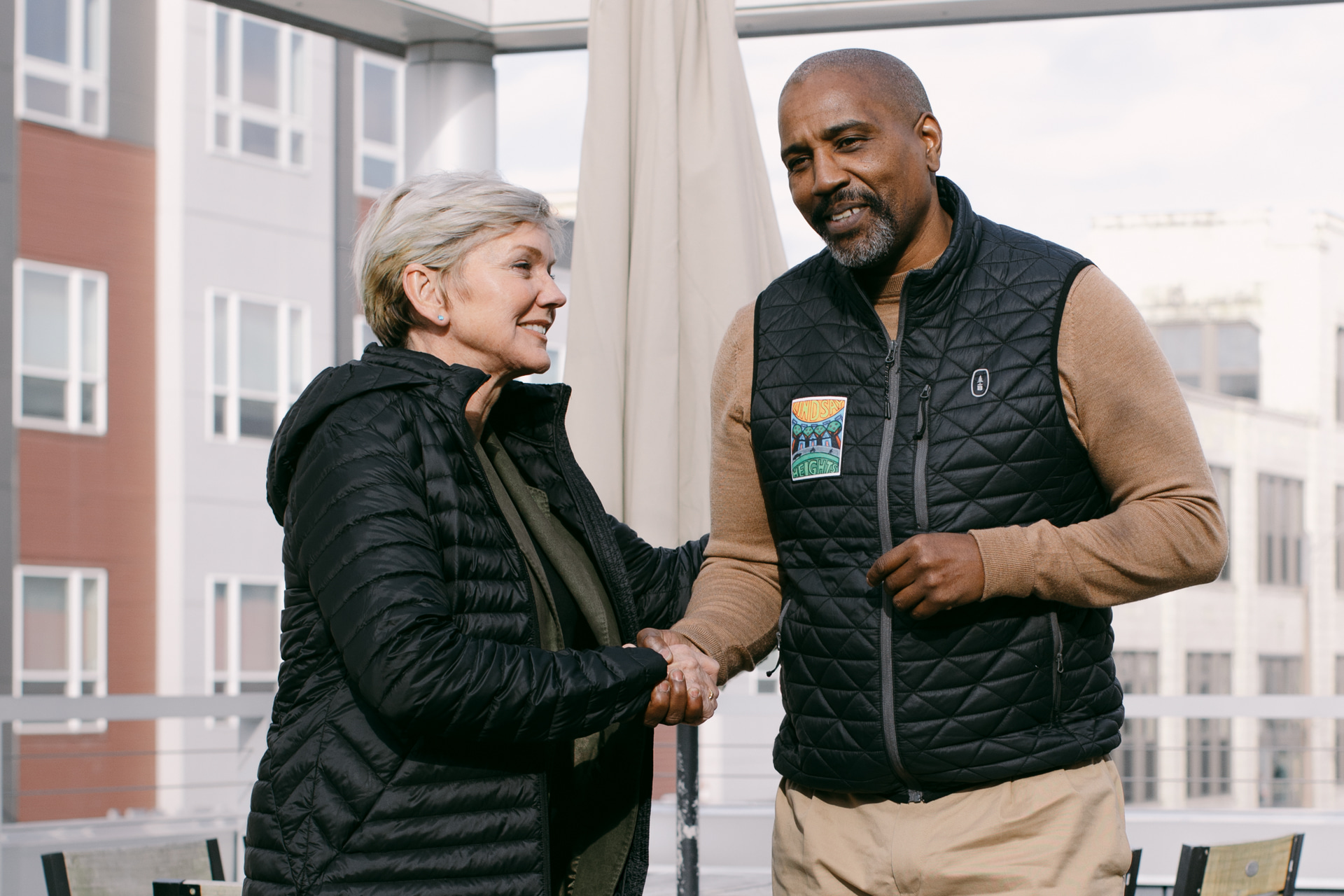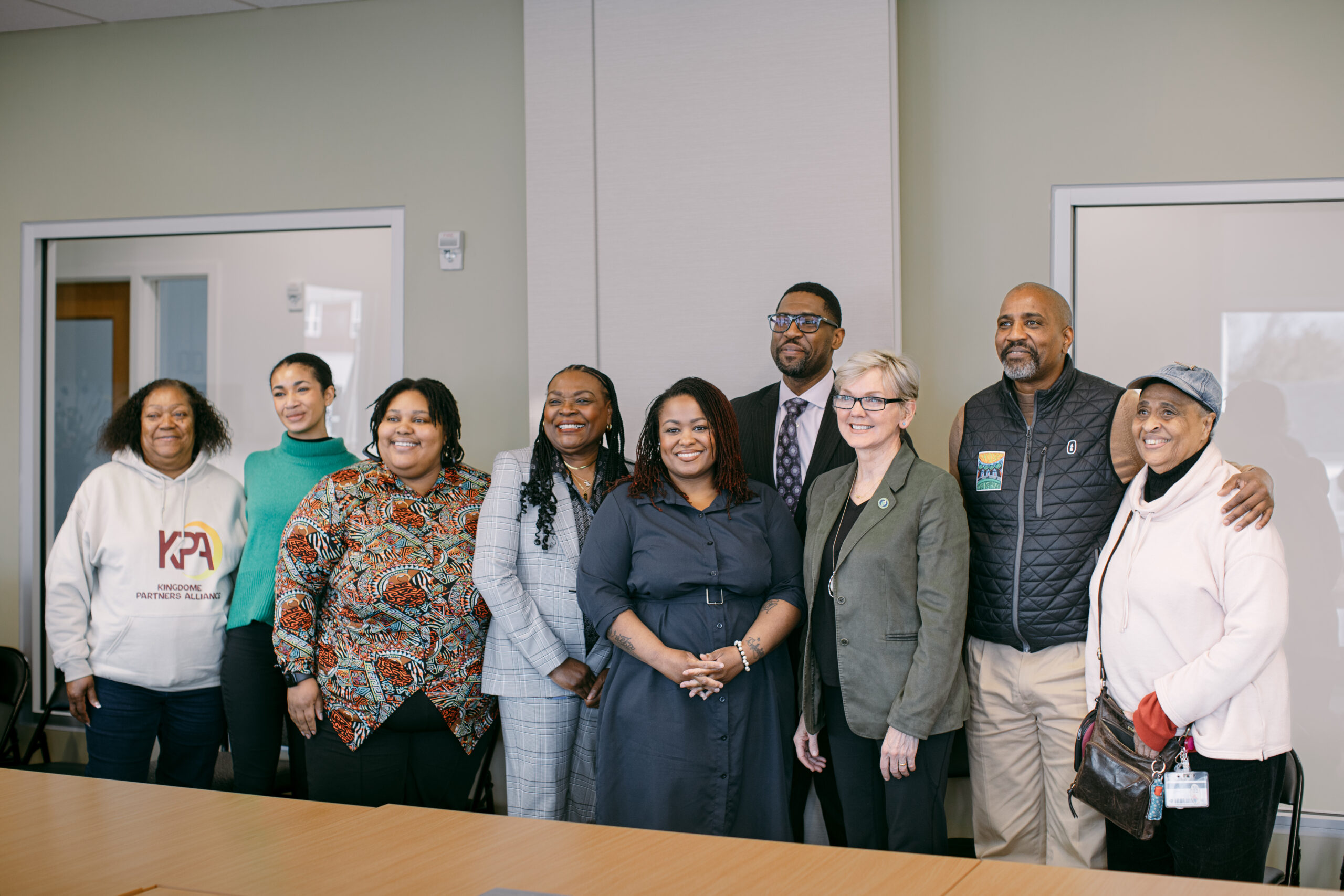On Wednesday, March 27, Walnut Way welcomed the U.S. Department of Energy (DOE) Secretary Jennifer Granholm to their site, opening up a conversation about shared priorities in uplifting progress for environmental justice communities and the transformative nature of the DOE’s involvement in helping the country reach decarbonization goals.
“What a massive honor to host Jennifer Granholm to Walnut Way, having the opportunity to showcase the transformational work being done with community-led comprehensive development,” said Antonio Butts, Executive Director of Walnut Way. “Because of the work being done at the DOE, we can use these grants to further the development of our neighborhood and provide green energy opportunities for low to middle-income individuals, sustainably transforming the city one grant at a time.”

Photo Credit: Clean Economy Coalition of Wisconsin
“The Inflation Reduction Act (IRA) and the Bipartisan Infrastructure Law (BIL) are geared towards healing the rift of the past,” said Granholm. “We want to emphasize and empower communities to have a voice. This can be seen through grant stipulations such as the Community Benefits Agreement (CBA). With the CBA, we wanted to provide a vehicle to empower communities to speak and be heard.”
During her visit, Secretary Granholm participated in a roundtable facilitated by Butts. While leading the roundtable, Butts outlined Walnut Way’s work to elevate the voices of those in the community who haven’t previously had a seat a the table for environmental justice work and the community impact of helping weatherize and install renewable technology on homes in the neighborhood.
Granholm heard several concerns from Butts and others. In her response, she emphasized an upcoming IRA program to help low to moderate-income households with appliance rebates.
“But what we’re going to need is we’re going to need partners on the ground to be able to get the word out to people so they know that these are going to exist,” Granholm said. “Now, it comes through the state and Wisconsin has pledged to by June to roll out their program.”
Granholm shared that the program, for example, might be able to help people replace a worn-out furnace or air conditioning unit with a more expensive heat pump — a more efficient device that transfers energy instead of mostly producing it with fossil fuels.
Butts said the conversation was productive and noted that initiatives from the DOE and programs implemented through the IRA are key in accelerating clean energy solutions — specifically for low and moderate-income people.

